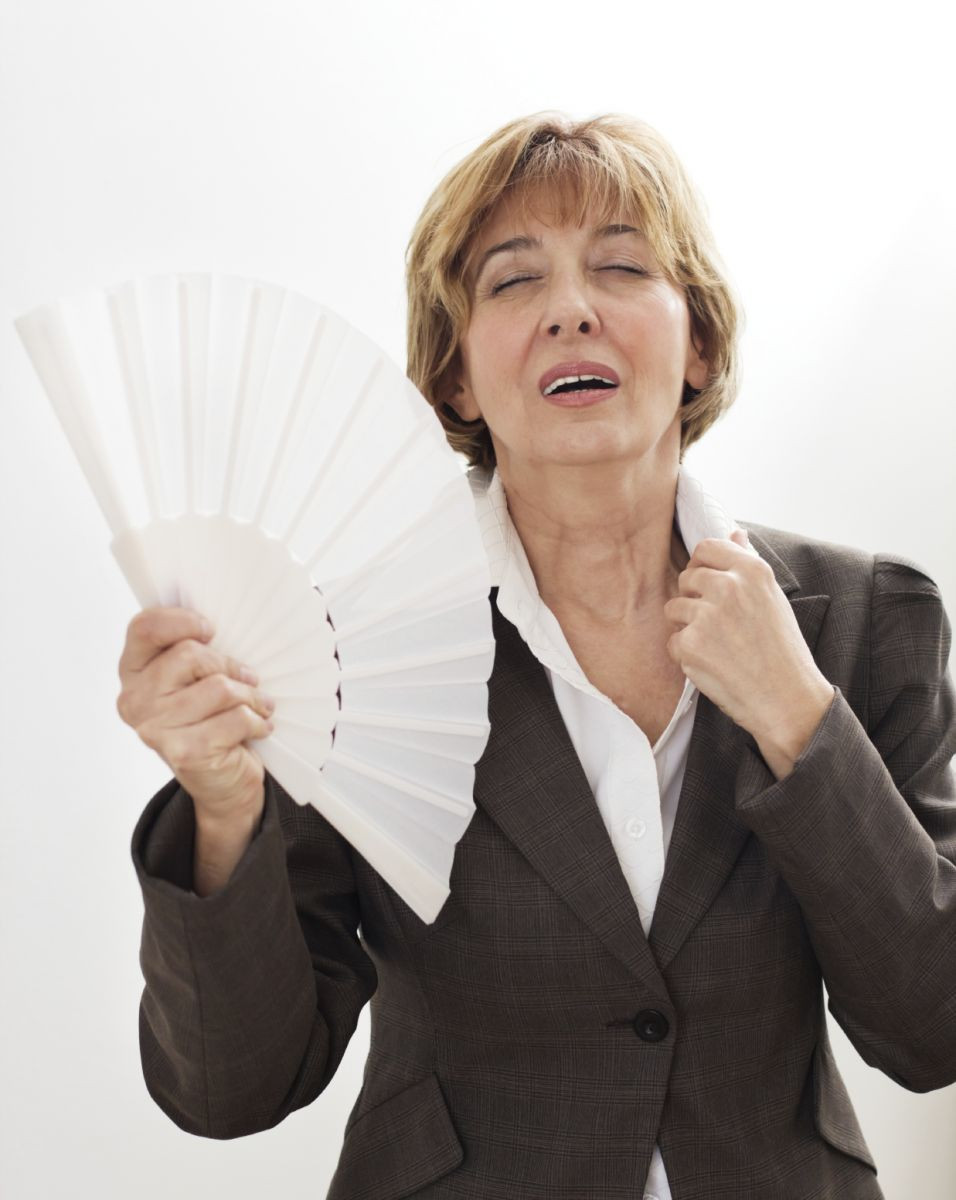Recent Articles

Depression symptoms: Recognizing common and lesser-known symptoms

Medication side effects: What are your options?

Independent living with home care assistance: Balancing autonomy and support

Dialysis: What to expect from this life-changing — and lifesaving — treatment

The BEEP program: Keep your balance

Hoarding: What to know about this mental health disorder

21 spices for healthy holiday foods

Listeria: How to protect yourself from this common cause of food poisoning

Adult day care can benefit older adults and their caregivers

Digestive enzymes: How supplements like Lactaid and Beano can help with digestion
Women's Health Archive
Articles
Is it normal for hot flashes to last long after menopause begins?
Ask the doctor
Menopausal symptoms such as hot flashes may last for years after menopause begins. But there are treatments that can offer relief. Image: iStock |
Q. I'm 62 years old, and my last menstrual period was at age 51. My doctor told me that my hot flashes would end after "about three to five years," but I still have them. Am I unusual, and what can I do?
Should postmenopausal women boost their aerobic exercise time?
Among 400 postmenopausal women who were previously inactive, those who did 300 minutes per week of moderate or high intensity exercise had more success at reducing total fat after one year than those who exercised for 150 minutes per week.
“Not Again!” — When UTIs won’t quit at midlife
Urinary tract infections (UTIs) occur in women of all ages. Physical and hormonal changes can leave women at midlife particularly vulnerable. No woman should have to put up with the inconvenience and discomfort of recurrent UTIs. Self-help measures can be effective, but if they don’t do the trick, see your doctor. He or she can identify and treat any underlying problems and recommend other strategies to keep UTIs at bay.
Study gives new insights into obesity and breast cancer
An analysis from the Women's Health Initiative (WHI) suggests not only that postmenopausal women who are overweight or obese have a higher risk of invasive breast cancer than women of normal weight but also that the excess risk increases as a woman's weight rises beyond obesity. The results were published online June 11, 2015, by JAMA Oncology.
A team of investigators from several medical centers studied data on 67,000 postmenopausal women who enrolled in the WHI between 1993 and 1998. They were followed for a median of 13 years. During that time, 3,388 invasive breast cancers were detected. The researchers analyzed the distribution of breast cancer among weight classes and calculated the risks for women who were overweight (body mass index, or BMI, of 25 to 30), obese (BMI 30 to 35), or very obese (BMI over 35) compared with women of normal weight (BMI 25 or less). They found that the increased risk of developing breast cancer ranged from 17% in women who were overweight to 59% in those with a BMI over 35. Among women who began the study at a normal weight, those who gained at least 5% of their original weight had a 12% higher risk of developing breast cancer than those who maintained their original weight. Neither losing weight nor using hormone therapy had a significant effect on risk for women of any weight.
Exercise prevents serious injuries in women who fall
A randomized controlled trial of Finnish women over 70 has demonstrated that regular exercise can significantly reduce the risk of serious injury from a fall. Researchers from Tampere University studied 370 women who had fallen during the previous year. They were randomly divided into two groups. One group of 187 participated in classes in which they learned exercises to increase strength, balance, and agility. They attended exercise class twice a week for a year and once a week the next year. They exercised at home on the days they weren't in class. The women in the control group continued their normal routines. All the women kept daily diaries in which they noted whether they had fallen, and if so, the type of injury they sustained and whether they required medical attention. They mailed their diaries to the researchers every month.
At the end of the period, the number of falls was about the same in both groups: 140 in the exercise group and 141 in the control group. The consequences of those falls, though, differed noticeably between the groups: women in the exercise group had 20 falls requiring medical attention, including eight fractures and six head injuries. That compared with 39 such falls in the control group, involving 14 fractures and 12 head injuries.
Too little — or too much — sleep linked to dementia risk
Participants in the Women's Health Initiative Memory Study (WHIMS) have provided a trove of information. They completed monthly questionnaires and underwent cognitive tests. Those who showed significant decline were also tested for dementia.
Recently, researchers analyzed data from 7,444 participants over 65. They had followed the women an average of seven years. Their report was published online June 15, 2015, by Alzheimer's & Dementia.
Stopping estogen therapy may bring back the blues for some women
As estrogen levels fall during menopause, a woman's risk of depression triples. Estrogen therapy helps elevate mood for some women, but a study published in the May 27, 2015, issue of JAMA Psychiatry has indicated that depression may recur once women stop using estrogen.
A team of researchers at the National Institute of Mental Health studied 56 postmenopausal women, 26 of whom had a history of depression and 30 who had never been depressed. The women were each given an estrogen patch to wear for three weeks and tested for depression. None were depressed.
Do you have an overactive thyroid?
Millions of people have an overactive thyroid gland. Many don't know it. This condition, known as hyperthyroidism, occurs more often in women than in men. Since the thyroid gland controls the body's metabolism, an overactive thyroid puts the body into overdrive.
The symptoms of an overactive thyroid can be subtle and suggest any number of other health problems, ranging from a bowel problem to heart disease or a mental health issue. Some of the signs and symptoms of an overactive thyroid include:
Recent Articles

Depression symptoms: Recognizing common and lesser-known symptoms

Medication side effects: What are your options?

Independent living with home care assistance: Balancing autonomy and support

Dialysis: What to expect from this life-changing — and lifesaving — treatment

The BEEP program: Keep your balance

Hoarding: What to know about this mental health disorder

21 spices for healthy holiday foods

Listeria: How to protect yourself from this common cause of food poisoning

Adult day care can benefit older adults and their caregivers

Digestive enzymes: How supplements like Lactaid and Beano can help with digestion
Free Healthbeat Signup
Get the latest in health news delivered to your inbox!
Sign Up








